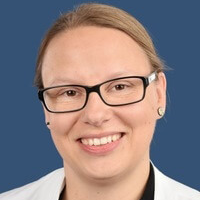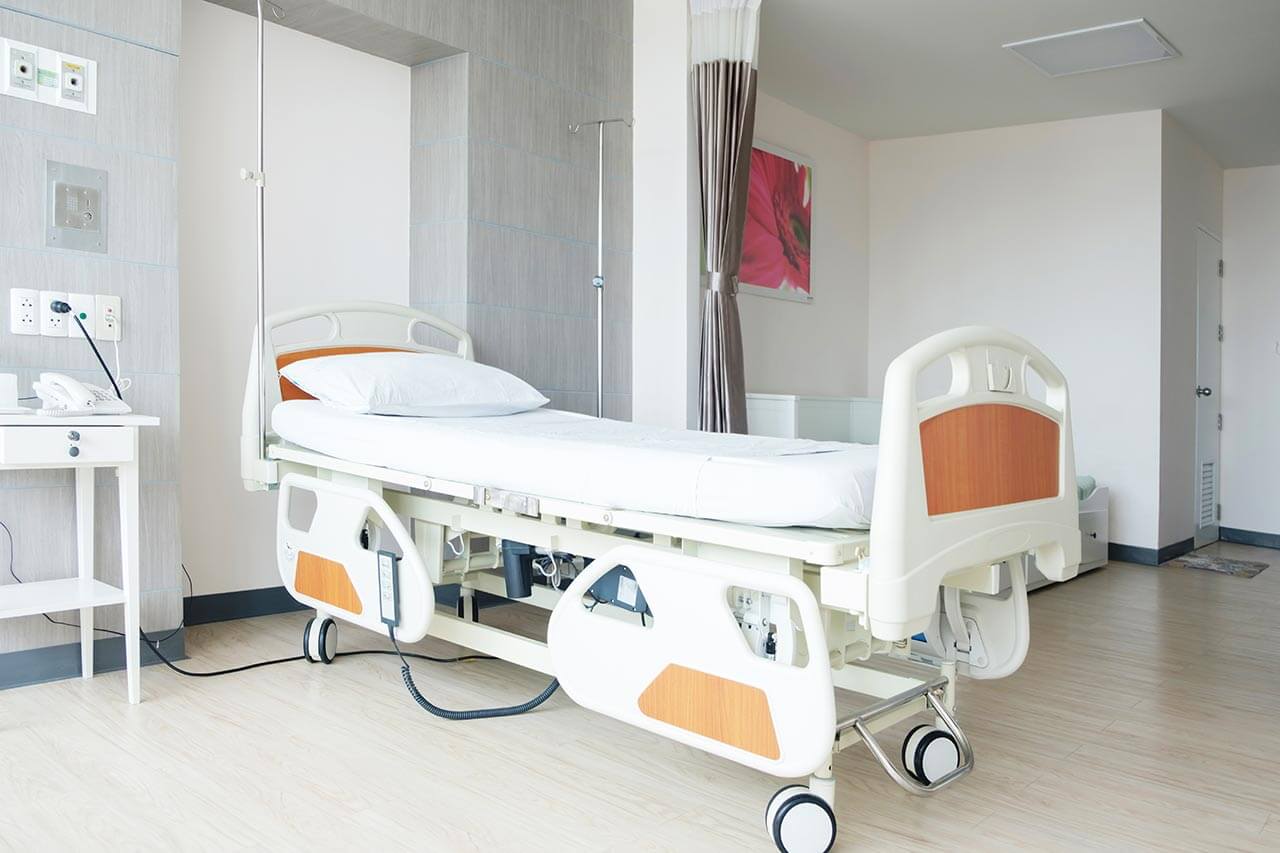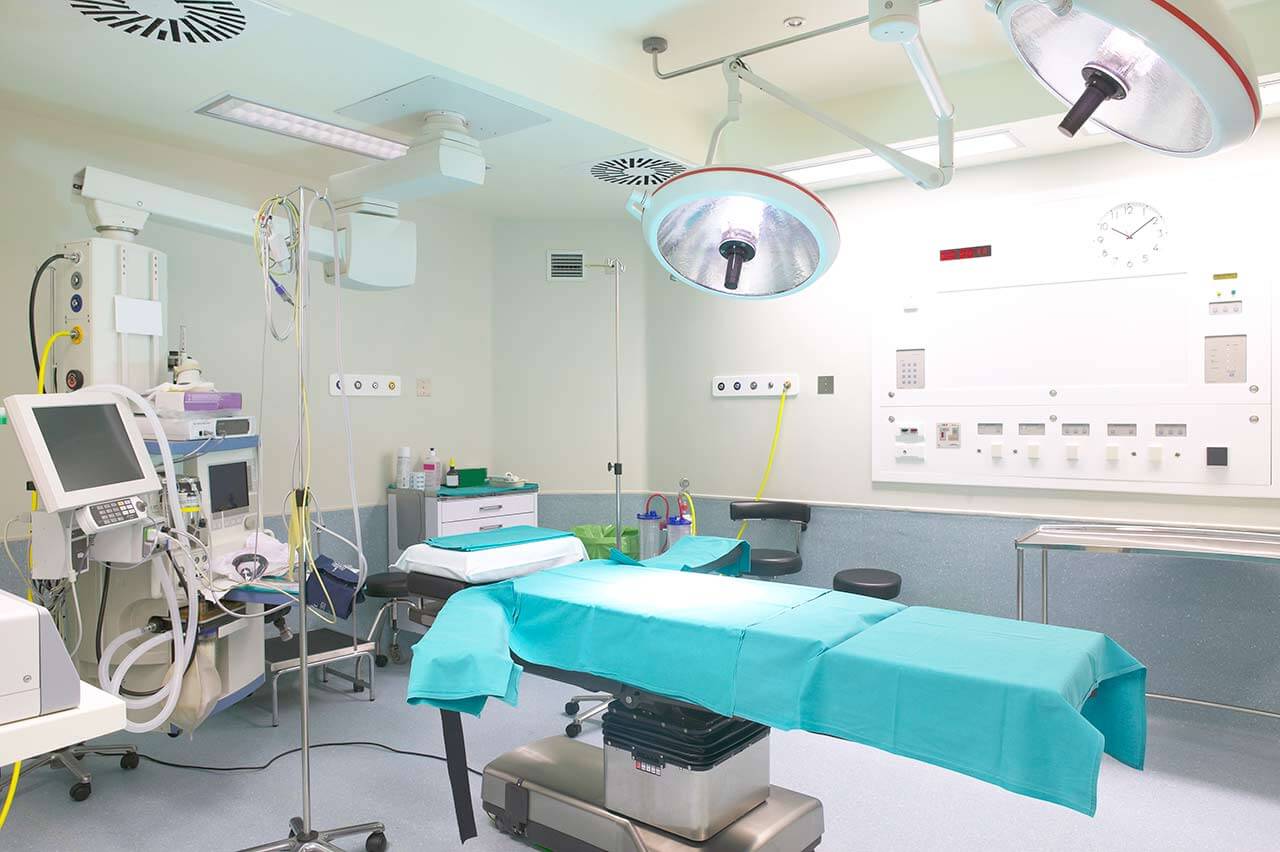
About the Department of Gynecology, Mammology and Obstetrics at Prosper Hospital Recklinghausen
The Department of Gynecology, Mammology and Obstetrics at the Prosper Hospital Recklinghausen offers high-precision diagnostics and comprehensive treatment of diseases of the reproductive organs and breast pathologies in women. The department's key focus is the treatment of breast cancer and urinary incontinence. The team of gynecologists is also particularly interested in the treatment of malignant diseases of the female reproductive system, such as cervical cancer, uterine cancer, ovarian cancer, and vulvar cancer. The department is the only Gynecologic Cancer Center certified by the German Cancer Society (DKG) in Recklinghausen. Sparing minimally invasive and robot-assisted da Vinci surgery is widely used in the department's clinical practice. These techniques are innovative in modern surgery and allow doctors to perform gynecologic surgery with only a few small skin incisions. The department's gynecologists treat more than 4,000 patients every year, with about 2,800 of them undergoing treatment on an inpatient basis. The department also offers integrated management of pregnancy at all stages, including high-risk pregnancies, safe childbirth, and postpartum care. More than 900 babies are born here every year. The department is headed by Dr. med. Nina Herrmann.
The department's gynecologists are highly professional in the treatment of benign and malignant diseases of the female reproductive organs. The most common benign pathologies in the department's clinical practice are uterine fibroids, benign ovarian tumors, endometriosis, cervical dysplasia, and genital warts. To treat these pathologies, the department's medical team has an impressive arsenal of techniques such as classical, robot-assisted, and minimally invasive surgical interventions, as well as advanced laser procedures. For example, the department removes uterine fibroids using da Vinci robot-assisted surgery. The robotic surgical device consists of several "slave manipulators", which serve to perform all kinds of surgical maneuvers. One of them holds a tiny video camera, thanks to which a high-resolution 3D image is displayed on a large screen so that the surgeon can clearly see the operating field. The thinnest surgical instruments are fixed to the rest of the "slave manipulators". When performing the operation, the surgeon is sitting at a special control console, which he uses to give commands to the robot. Endoscopic instruments follow the movements of the surgeon's hands with millimeter precision, thereby avoiding serious damage to healthy tissue. The robot-assisted interventions eliminate the need to resect the anterior abdominal wall, as in classical open surgery, which promotes early postoperative recovery and minimal pain in the postoperative period. In addition, robot-assisted surgery excludes damage to the bladder, so the patient will not experience any problems with urination, which may sometimes arise after open interventions.
The treatment of malignant tumors of the female reproductive system, such as endometrial cancer, uterine cancer, cervical cancer, ovarian cancer, and vulvar cancer, is a more complex clinical task and requires an interdisciplinary approach of specialists from several related fields. The department's specialists hold weekly tumor boards with the participation of oncologists, radiation therapists, chemotherapists, radiologists, and other doctors. The treatment regimen for cancer of the female reproductive system is developed exclusively on an individual basis, taking into account the patient's needs and wishes. The department offers advanced treatment methods that can effectively cure gynecological cancers of various stages. If clinically indicated, patients suffering from uterine and cervical cancer can undergo sparing robot-assisted interventions using the da Vinci surgical system. The lymph nodes can also be removed using robotic intervention. In case of cancers of other internal and external female reproductive organs, the department's gynecologists have to resort to open surgery. After the operation, the patients are under close supervision in a modern Intensive Care Unit, and also undergo follow-up treatment, which may include chemotherapy, radiation therapy, antibody therapy, etc.
Another important focus of the department's gynecologists is the treatment of urinary incontinence and pelvic organ prolapse in women. In this medical field, gynecologists cooperate closely with specialists in urology and coloproctology. Thus, patients can undergo interdisciplinary diagnostics and receive optimal therapy. The department specializes in the treatment of all forms of urinary incontinence and offers each patient an individual treatment plan, taking into account her clinical case. The therapeutic options include both conservative and surgical techniques. Conservative treatment methods for urinary incontinence include therapeutic exercises to strengthen the pelvic floor muscles, biofeedback, pessaries, electrical stimulation, etc. If these methods do not yield any positive results, the doctors will have to resort to surgical treatment. Most surgeries for urinary incontinence are performed using sparing minimally invasive techniques. The specialists mostly perform TVT and TVT-O sling procedures. In cases of pelvic organ prolapse, patients undergo such operations as Amreich-Richter sacrospinous fixation, anterior and posterior vaginoplasty with removal or preservation of the uterus, and plastic surgery using biocompatible plastic meshes.
The department's team of breast specialists focuses on breast cancer treatment. The therapy complies with the guidelines of the German Cancer Society, the Working Group on Gynecologic Oncology, and the recommendations of the European Society of Breast Cancer Specialists (EUSOMA). The department offers advanced medical equipment for comprehensive breast cancer diagnostics, including digital mammography, high-resolution 3D and 4D ultrasound scanning, MRI, and all types of breast biopsy. Once the doctor makes an accurate diagnosis and determines the stage of the pathology, he will prescribe the optimal treatment regimen, which is mostly based on a surgical intervention. In many cases, the department's breast specialists manage to preserve the breast. If the disease has an advanced stage and breast removal is required, the patient will be offered follow-up plastic reconstructive surgery to restore the breast and maintain an attractive appearance. An integral part of therapy is also psycho-oncological support aimed at developing a positive attitude towards treatment.
A highly professional team of obstetricians and gynecologists takes care of the integrated management of pregnancy and the comfortable course of childbirth. The specialists have vast clinical experience to ensure safe childbirth to the expectant mother. Preference is given to natural childbirth, taking into account the needs and wishes of expectant mothers. If necessary, a C-section is performed in a state-of-the-art operating room adapted to this type of operation. There is also the possibility of giving birth in water. Due attention is paid to pain relief during childbirth, for example, using relaxation baths, homeopathy, acupuncture, drugs, etc.
The department's clinical focuses include:
- Gynecology
- Diagnostics and treatment of malignant diseases of the female reproductive system
- Surgical treatment
- Organ-sparing surgery for precancerous conditions
- Robot-assisted surgery using the da Vinci robotic system for uterine and cervical cancers, including a lymphadenectomy
- Classical and minimally invasive surgery for endometrial, cervical, ovarian, vulvar, and vaginal cancers
- Conservative treatment
- Chemotherapy
- Radiation therapy
- Antibody therapy
- Hormone therapy
- Immunotherapy
- Surgical treatment
- Diagnostics and treatment of benign diseases of the female reproductive system
- Laparoscopy for the surgical treatment of uterine and ovarian diseases: cysts, fibroids, tumors, endometriosis, and inflammatory and adhesive processes
- Laparoscopy for an ectopic pregnancy (with fallopian tube preservation, if possible)
- Laparoscopy for the removal of the uterus and/or ovaries
- Removal of the uterus and/or ovaries through the vagina or a small transverse incision in the lower abdomen (in cases of contraindications to laparoscopic or robot-assisted surgery)
- Removal of fibroids with preservation of the uterus or surgical treatment of ovarian pathology through a small transverse incision in the lower abdomen (in cases of contraindications to laparoscopy)
- Therapeutic endoscopy for uterine diseases: bleeding, fibroids, and polyps
- Dilation and curettage for bleeding (to preserve the uterus)
- Robot-assisted surgery using the da Vinci surgical system for fibroids, adhesions, and pelvic organ prolapse, including surgical removal of the uterus and/or ovaries
- Laser treatment of genital warts on the external genitalia
- Surgery for urinary incontinence
- TVT and TVT-O sling procedures
- Burch colposuspension
- Surgery for pelvic organ prolapse
- Corrective surgery for uterine and/or vaginal prolapse
- Anterior and posterior vaginal plastic surgery with and without a hysterectomy
- Amreich-Richter procedure for pelvic organ fixation
- Pelvic organ fixation using laparoscopy or the da Vinci surgical system with the implantation of a biocompatible plastic mesh
- Pelvic floor muscle reconstruction in cases of recurrent prolapse using the method of implanting biocompatible plastic meshes
- Diagnostics and treatment of malignant diseases of the female reproductive system
- Mammology
- Diagnostics and treatment of breast cancer
- Surgical treatment
- Organ-preserving surgery, including methods of oncoplastic surgery using autologous tissues to close defects
- Classical techniques for lymph node removal in the armpit
- Breast removal and its immediate reconstruction
- Breast reconstruction with autologous tissues or implants
- Breast reduction or augmentation after tumor resection
- Nipple reconstruction surgery
- Conservative treatment
- Chemotherapy
- Radiation therapy
- Antibody therapy
- Hormone therapy
- Immunotherapy
- Surgical treatment
- Aesthetic plastic surgery for breast augmentation or reduction
- Corrective interventions for breast asymmetry or deformities
- Diagnostics and treatment of breast cancer
- Obstetrics
- Integrated management of pregnancy
- Childbirth: natural childbirth, water birth, and C-section
- Pain management: homeopathy, acupuncture, analgesic drug therapy, relaxation baths, etc.
- Postpartum care for mother and baby
- Other medical services
Photo of the doctor: (c) Prosper-Hospital Recklinghausen




